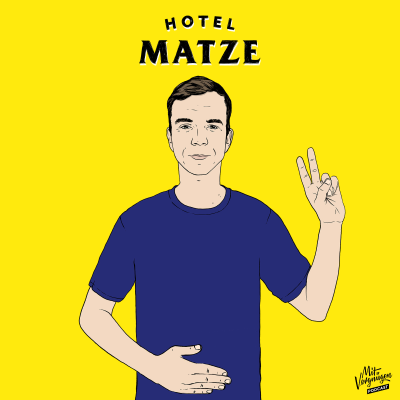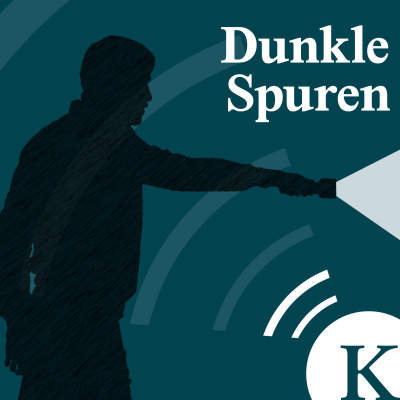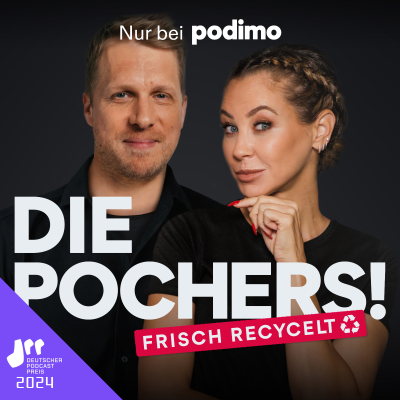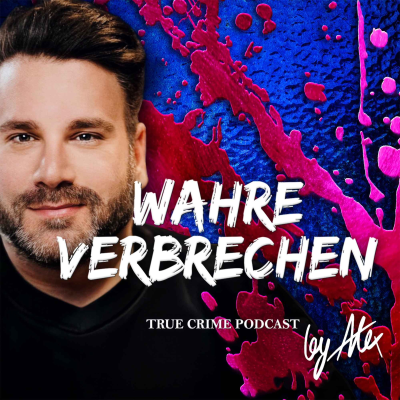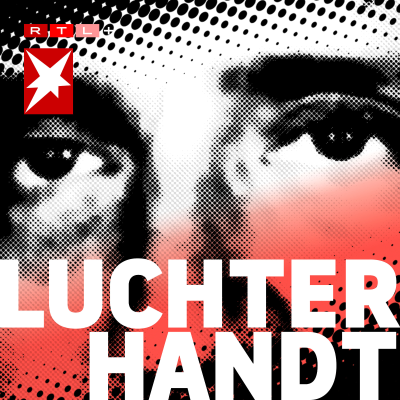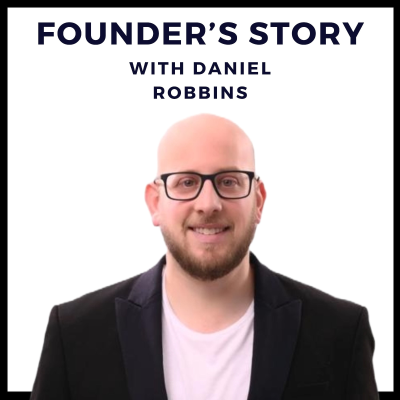
Founder's Story
Podcast von IBH Media
Nimm diesen Podcast mit

Mehr als 1 Million Hörer*innen
Du wirst Podimo lieben und damit bist du nicht allein
Mit 4,7 Sternen im App Store bewertet
Alle Folgen
224 FolgenLaura Inamedinova [http://gate.io], one of the most influential women in Web3. From her accidental entry into Bitcoin during college to leading investments at Gate Ventures, Laura shares unfiltered insights into crypto, venture capital, and what most founders get wrong when pitching investors. Key Discussion Points: * How Laura’s curiosity in college led to early Bitcoin investments * Why being early in an immature industry gave her an unfair advantage * The biggest mistakes crypto founders make when raising capital * How VCs actually think—and what they look for in a pitch * Why personal brand is both a superpower and a liability in VC * The tension between real utility and hype in token-based projects * How to pitch in 5 sentences or less and actually get a callback Takeaways: * Entering an immature industry can fast-track your expertise—if you're willing to take risks. * Most founders pitch dreams. Investors want clear paths to 10x returns. * “Being cheaper or faster isn’t a competitive edge. It’s just noise.” * Want funding? Don’t tell your life story. Share your token model, GTM plan, and why your cap table matters. Closing Thoughts: Laura leaves us with a reminder: if you're serious about raising from top crypto VCs, do your homework and respect their time. The best pitches are clear, specific, and relentlessly focused on how everyone wins.
Brent and Josh lost their jobs during the Great Recession, they didn’t plan to start a business—they just needed to pay the mortgage. What began with goat milk soap made at their dining room table has become Beekman 1802 [https://beekman1802.com], a cult-favorite brand with over 60 million bars sold. In this episode, they unpack how desperation, kindness, and slow, intentional growth led to one of the most beloved product-first companies in America. Key Discussion Points: * Why losing their jobs became the best thing that ever happened to them * The early years: no salaries, no investors—just grit and goats * How QVC and The Amazing Race helped them master storytelling * The “51% rule” that saved their business—and their marriage * The problem with chasing unicorns vs. building sustainable ladders * How they define success—and why they don’t keep moving the goalposts * Why the best founders think like owners, not fundraisers * What happens after the exit—and how kindness became their legacy Takeaways: * Kindness is a business strategy—start there * You don’t need VC to build something real * Your brand should feel like love, not hype * Set your own success metrics—and protect them Closing Thoughts: Brent and Josh didn’t start Beekman 1802 to build a unicorn—they started it to survive. What they built instead was a brand powered by community, trust, and relentless kindness. Their story is a reminder that in business (and in life), doing the next kind thing can take you further than you ever planned.
Nina Ythier, after 20 years working inside broken systems, turned rejection into redirection—founding MindSpeak Inc. [http://www.mindspeakinc.com], a therapy practice redefining mental health care through real-world, person-first solutions. In this episode, she shares the power of creative healing, why ego-free hustle matters, and how nontraditional care is changing lives. Key Discussion Points: * Why “graduating” from toxic workplaces led to building something better * Starting with just a few clients—and a side job at Planet Fitness * Building a therapy brand rooted in creativity, not conformity * How Nina uses yoga, art, and community as tools for healing * Industry backlash: what happened when she challenged the system * What Gen Z’s loneliness says about our cultural crisis * The future of therapy: tech, touch, and psilocybin * Redefining success in mental health care—one Dunkin’ chat at a time Takeaways: * Your style is your brand—especially in human-first work * Building a mission-driven business starts with betting on yourself * Therapy doesn’t belong in beige boxes—meet people where they are * True change comes from trust, presence, and showing up without ego Closing Thoughts: Nina Ythier is proving that therapy doesn't have to follow the rules to work. By stepping outside the office and into real life, she's helping clients heal through connection, creativity, and courage—reminding us that the most powerful breakthroughs often happen far beyond the couch.
Sam Chipkin [http://www.5amcapital.com.au], after nearly a decade in the high-stress world of New York finance, moved to Bondi Beach and rewired his approach to investing. In this episode, he shares how quiet mornings, long walks, and deep research shaped his investment strategy—and why 5AM Capital is betting on patient capital, enduring businesses, and disciplined risk. Key Discussion Points: * Leaving Wall Street: Why chaos isn’t required to create value * Building a boutique fund that caps growth at $750M * The power of investing in monopolistic businesses with durable moats * Why the best investors act like long-term owners, not traders * Founder vs. hired CEO mindset—and how it affects outcomes * How stress and stillness each played a role in shaping his success * What most people get wrong about investing returns * The underestimated mental load of wearing every hat as a founder Takeaways: * Slower, focused growth often outlasts fast, flashy scale * The best investments are deeply researched, not broadly scattered * Building something meaningful requires clarity, conviction, and capacity to think long-term * Culture and alignment are assets—don’t outgrow them Closing Thoughts: Sam Chipkin proves that high returns don’t require chaos. With a boutique, conviction-driven strategy and a firm belief in doing fewer things better, he’s showing why simplicity and discipline are the ultimate edge in business and investing.
Kass and Mike Lazerow [https://kassandmike.com/the-book] peel back the curtain on life—and love—as co-founders of multiple breakout ventures. From the early days of building Golf.com to scaling Buddy Media into a $700 million+ Salesforce acquisition, they share the grit, the joy and the “shoveling shit” mentality behind every pivot and payoff. Key Discussion Points: * Why “Shoveling Shit”?: The visceral truth of entrepreneurship—every success is paid for in messy, daily hard work. * Business + Marriage = Love Story: How dating, co-founding and parenting three kids forged their partnership both in and out of the boardroom. * Co-founder Chemistry: Choosing non-overlapping skill sets, setting clear expectations, and having tough conversations early to survive the rough patches. * The High-Profile Exit: Celebrating a $700 million sale to Salesforce—and the mixed emotions, burnout and newfound freedom that followed. * Who’s an Entrepreneur?: Everyone—from the corner pizza shop owner to the solo‐founder—can embrace the entrepreneurial spirit if they’re willing to shovel shit. * Risk, Debt & Scale: Why wanting nothing (minimal burn) + smart leverage of debt + relentless focus on execution define the winners. Takeaways: * Real success demands loving the daily grind—embrace the mess, don’t fear it. * A co-founder relationship is your most critical asset—invest in alignment on values, work ethic and communication. * Money changes the game but doesn’t guarantee happiness; use your windfall to fuel purpose and impact. * Everyone can be a founder at their own scale—but only those who master risk tolerance and ruthless prioritization will thrive. Closing Thoughts: Kass and Mike Lazerow prove that the world’s greatest companies—and relationships—are built one shovel of shit at a time. Tune in to find out how they turned daily disasters into billion-dollar exits, and why the love of the hustle is the ultimate driver of both profit and purpose.



